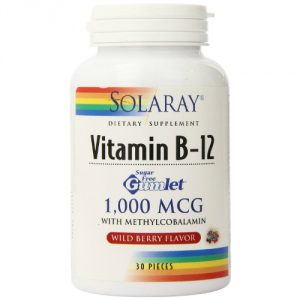Homocysteine is a common amino acid found in the blood and it is acquired through consumption of meat. High levels of homocysteine are associated to the early development of heart and blood vessel disease. High level is considered to be an independent risk factor for the heart disease.
High homocysteine is associated with low levels of vitamin B12, B6, foliate and renal disease. In fact individuals suffering from cardiovascular disease, migraines, stroke and dementia could be suffering from the effects of elevated levels of homocysteine. Replacing these vitamins often helps to bring the level of homocysteine to normal.
Genetic disorders may also affect the ability of the body to metabolize homocysteine into cysteine, this may result to elevated levels of homocysteine in the urine and blood. Screening is highly recommended especially in infants if there is family history of this disease. Other possible causes include: low levels of kidney disease, thyroid hormone, psoriasis, some medicines or if the condition spreads into your family.
Potential Risks associated with High Levels of Homocysteine
- Higher levels of elevated homocysteine would affect the inner lining of blood vessels with an individual’s body, this results to increase of risk of atherosclerosis or narrowing of blood vessels. This can lead to heart attack and stroke. The risk of pulmonary thrombosis and deep vein thrombosis can also be associated with high levels of homocysteine in the body.
- Infants born with the genetic condition of homocystinuria, the inherited disorders affect the body’s metabolism of homocysteine to cysteine. This leads to the dislocation of lens in the eye, marfan type appearance, sunken chest, seizures and mental retardation. Neonatal strokes may also crop up with high level of homocysteine.
- There is a correlation between homocysteine levels in the body and the size of the carotid arteries which supply the brain with blood, hence the higher the homocysteine levels the more stenosed the carotid artery. It also causes Alzheimers disease and some other types of dementia which are occasionally diagnosed with most patients.
- In pregnancy period, homocysteine levels tend to go down. High levels may be associated with fetal abnormalities that go long potential blood vessel problems in the placenta which may result to abruption.
How Vitamin B12 helps lower high levels of Homocysteine
The key to containing the runaway of homocysteine is by changing the amino acid back into harmless amino acid methionine through a normal process known as remethylation. In order to accomplish remethylation, the body needs sufficient amount of vitamin B12. In the absence of this cofactor, there will be a resultant accumulation of homocysteine to toxic levels which can be destructive to cognitive function in the brain.
The treatment for homocysteine can be done through vitamin supplementation. The vitamin can be found in wide variety of fruits, leafy vegetables, asparagus, lentils and fortified grain products that are fortified with folic acid.

Vegetarians who do not supply their diet with vitamin B12 may have low levels of homocysteine and vitamin B12. These conditions are especially associated with brain atrophy and dementia, though there is an evidence for birth defects, low bone mineral density and stroke.
Some patients don’t respond to vitamin supplementation. They are therefore considered to be pyridoxine-resistant. A diet low in methionine would be the most appropriate in addition to the vitamin B12.


Leave a Reply